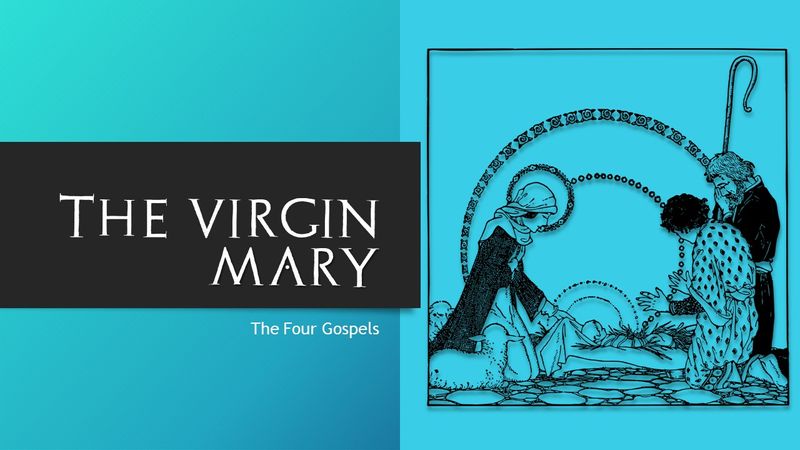Honey or Vinegar
I am trying to change the general tone of how I write. As my friend Everett has told me, “You catch more flies with honey than vinegar.” Of course, he isn’t the first one to say this, but it’s true. But sometimes I just get so fired up I spew out vinegar. This may well be a post full of vinegar, but even if it is, I hope I do so in a respectful tone. But my goal for this post is to expose the deeply embedded idolatry found in much of the church. My hope and prayer are that this will start a much-needed conversation.
You are What You Say
It is generally acknowledged that one’s Word is indeed identified with the person in whom the word was spoken. For instance, if I say, “I will do so and so,” and I failed to do that which I said I would do. It would be said if me, “Gabriel is not a man of his word.” How much more so with God’s Word? As Karl Barth says in his Church Dogmatics volume 1:1, “What God speaks is never known or true anywhere in abstraction from God Himself. It is known and true in and through the fact that He Himself says it, that He is present in person in and with what is said by him.” So it may be said that God’s Word is never separate from God’s Self. Just as my word is never separate from myself. If the scriptures are therefore the Word of God, God’s very speech, then Scripture would not be separate from God. And would have two qualities that only God has. First, it would be eternal. Since God can never say something which God has not already said because God is immutable. Speaking something new would mean God changing, this would make God mutable.
And second, since God’s Word is never separate from Himself this would give Scripture full equality with the one who spoke forth the Word. This becomes problematic if we acknowledge the Bible as God’s Word because only God is eternal, and only God has full equality with God. This declaration of the Bible as God’s Word makes the Bible of the same substance as God. In other words, the Bible is God. This leads us down no other road than the one of idolatry. This is particularly so if we also acknowledge that God’s Word is the same thing as God’s Revelation. “Understanding the Word of God not as proclamation and Scripture alone but as God’s revelation in proclamation and Scripture, we must understand it in its identity with God Himself. God’s Revelation is Jesus Christ, the Son of God. The equation of God’s Word and God’s Son makes it radically impossible to say anything doctrinaire in understanding the Word of God.” We know however that Scripture is not God. These qualities of God, Himself being eternal, and His Full equality with Himself can only be ascribed to the Eternal Word of God, Jesus Christ, who is God.
The Bible is Part of The Trinity?
It is no wonder why some Christians have made the Bible part of the Trinity. Fundamentalist theology indeed came to this logical conclusion in the early 20th century. God’s speech cannot be separated from God. Just as the author’s words, both written and spoken, carry the full weight and authority of the author themselves. So, if the Bible is God’s Word then it must share the same ontological being with God.
I believe this is what led the fundamentalists to identify the Bible with God and continues to lead them to do so today, sometimes implicitly, and sometimes explicitly. I once had a friend a number of years ago who stated that Scripture and Jesus were basically the same thing. Munhall (a prominent Fundamentalist from the early 20th century) explains: “Jesus is the life and the light of man. The same is true of the Scriptures. Jesus said: “The words that I speak unto you, they are spirit, and they are life.” The Psalmist said, “Thy Word is a lamp unto my feet, and a light unto my path.” In an inexplicable way Jesus is identified with the Word.“The Word was God…and the Word became flesh.’”[1] Earlier on Munhall says, “that identification of God with the “Scripture,” (“the Scripture foreseeing,” giving to it eyes, mouth and foreknowledge, as a living organism equal with God).’”[2]One may cease to wonder about the centrality of Scripture within Fundamentalism. It is indeed so fundamental and central to their belief system that to remove it would be tantamount to removing God from their belief system.
Orthodoxy Tied to the Church’s Worship
It is only because Scripture has come to be worshipped that it has become an essential doctrine, a measure of one’s orthodoxy. For the church’s Orthodoxy, what we use to measure the authenticity of a doctrine as Christian, was always, and will always be tied to our worship. This for the early church meant that their doctrines that defined orthodoxy were doctrines of God. Scripture was not worshipped and therefore was not an essential doctrine for one’s orthodoxy. The fact that many modern statements of faith don’t start with God is telling. It shows us where our priorities have gone too. Scripture as the first doctrine in a “what we believe” statement has become the basis of our religion, it has become our God, and we have subjected God to the scriptures, making these the lens of which we see and interpret God through.
God In Chains
Said another way we have made Scripture the arbitrator and judge of who God is and what His nature is like. We have bound God with the chains [Scripture] we created. This may seem true and right to some but I believe it is because just how far down the hole of idolatry we have fallen. We have been blinded by our idolatry. We can’t imagine having a different God, other than the one that is leather-bound. All this is backwards to the first Christians, who placed God the Word Incarnated as their sole interpreter of the scriptures. The Scriptures did not decide who God was, only Jesus as the full revelation of God, as God Himself “decides” or better said, reveals who God truly is. What’s worse is that the Bible as “The Word” has totally replaced Christ as the Word, ironically an unbiblical concept. The recurring battle cry is, “The Bible is the only Word of God.” But if the bible is the only Word of God then Jesus cannot also be the Word. Something I don’t think people realize their doing. There is a church here in Tulsa who has gone and outright excluded Christ from any identification as the Word by doing this very thing. While many capitalize their W when referring to the Bible as The Word, (and they always mean the Bible) Jesus is in fact never meant as the Word thereby effectively negating Christ as the Word by practical implication.
Losing Our Grip
As our culture moves away from cultural/institutional Christianity and is becoming more and more less interested in objective morals, or anything to do with the church, I can almost feel many Christians and churches tightening their grip on the one thing they can actually have a grip on, their Bibles. Since God is beyond the physical, His presence cannot be held onto, as if God had a localized body, God cannot be controlled. There is a very real sense of anxiety in not being able to grasp a physical God, and so as we become continually anxious about losing our institutional power in the culture, we have indeed found a physical god we can grasp. This gives us a level of relief because we can be certain of a faith that is based on something we can see, the Bible. But as the author of Hebrews has said, hope is in things not yet seen. Many of us are losing hope in these times, uncertain of the presence of a God we cannot see, and so we continually raise the Bible higher and higher to a place of Godhood. This will not do. I implore the church to return to our first love, which is Christ.
A Come to Jesus Moment
But before I end, allow me to be abundantly clear. I am not attacking the Bible, its value, usefulness, or validity in the life of the church. I am not attacking those who have fallen to this idolatry. What I am doing is calling the church back to faithfulness in Christ. I am trying with all my might to deeply expose and root out this idolatry that has so infected our minds. My hope and desire are to see the church worship and follow Christ alone. I wish to see the Word of God, who is Christ, have His throne given back.
Thanks to my friend Stefanie who helped me refine this post.
[1]Munhall, The Fundamentals, 59.
[2]Munhall, The Fundamentals, 50.




